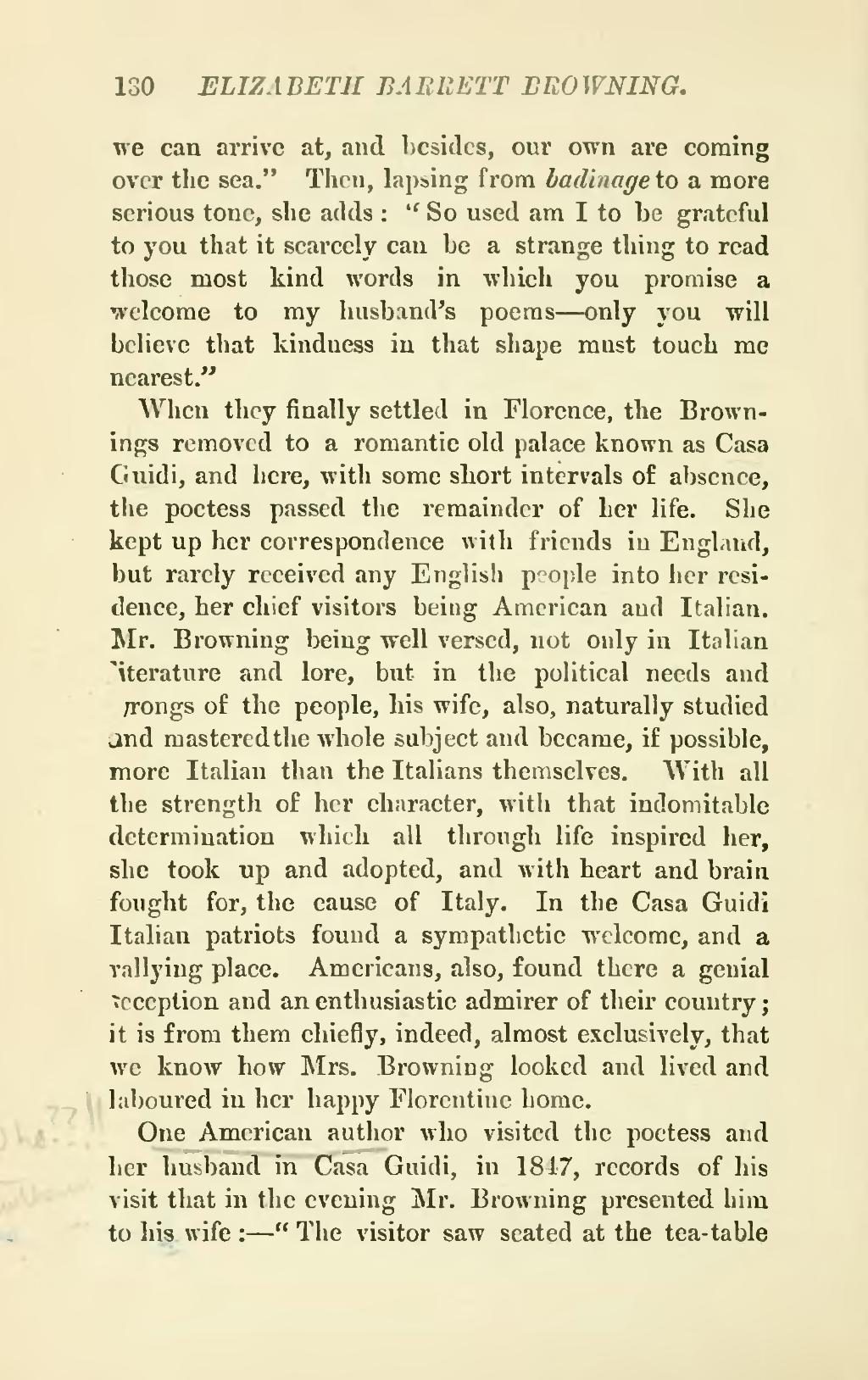we can arrive at, and besides, our own are coming over the sea." Then, lapsing from badinage to a more serious tone, she adds: "So used am I to be grateful to you that it scarcely can be a strange thing to read those most kind words in which you promise a welcome to my husband's poems—only you will believe that kindness in that shape must touch me nearest."
When they finally settled in Florence, the Brownings removed to a romantic old palace known as Casa Guidi, and here, with some short intervals of absence, the poetess passed the remainder of her life. She kept up her correspondence with friends in England, but rarely received any English people into her residence, her chief visitors being American and Italian. Mr. Browning being well versed, not only in Italian literature and lore, but in the political needs and wrongs of the people, his wife, also, naturally studied and mastered the whole subject and became, if possible, more Italian than the Italians themselves. With all the strength of her character, with that indomitable determination which all through life inspired her, she took up and adopted, and with heart and brain fought for, the cause of Italy. In the Casa Guidi Italian patriots found a sympathetic welcome, and a rallying place. Americans, also, found there a genial reception and an enthusiastic admirer of their country; it is from them chiefly, indeed, almost exclusively, that we know how Mrs. Browning looked and lived and laboured in her happy Florentine home.
One American author who visited the poetess and her husband in Casa Guidi, in 1847, records of his visit that in the evening Mr. Browning presented him to his wife:—"The visitor saw seated at the tea-table
